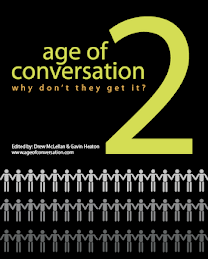Any similarity with real life is NOT accidental.
1- To think that their job is to make advertising campaigns, when in reality its creating new ways of connecting the solutions any given brand has to the people who really need them.
2- To think that the client (the advertiser) is never right and don’t know what he wants, instead of making an extra effort to closely listen to what their client is asking for. I’m sure that if you do this you’d be surprises at how much your client actually knows.
3- To think that the advertiser is just the account executive’s client and not the rest of the agency’s staff. How many times have you heard someone in the creative or production team tell de A.E. something like “tell your client…” The client is the Agency’s client not just the A.E., if it was believe me he would not be working as an A.E. but rather as the owner of the Agency.

4- To think that the only person responsible of doing PR for the Agency is the president of it or the PR director if there happens to be one. In ad agency everybody should be responsible of keeping a great image and providing an excellent experience, from the CEO to the receptionist and the waiter who elegantly serves coffee and snacks during meetings. Great opportunities can come from any person, provided that they have their eyes wide open and their disposition always present.
5- To think that creativity is the sole responsibility of the creative team. En any advertising and communication agency, each and everyone ought to be great creative thinkers, no matter what functional area they work with.

6- To think that an art director does not needs to be a good writer, that a copy writes does not have to care about design, that an account executive knows nothing about advertising and that a strategic planner just does focus groups.
7- To thing that digital media is there just for their leisure and fun and not to leverage them and make them a strong part of their campaigns. How is it exactly that they spend so much time up loading and watching and sharing videos in YouTube, chatting in their IMs, Googling information and people, up dating their status and reading their friend’s status in Facebook and they have not thought about getting their brands involved in this communication platforms.
8- To think that the mission of a media agency is to accumulate purchasing power to be “stronger” negotiators and squeeze the commissions and rebates from media networks, when in reality their mission should be to help their clients access and leverage the right media (not the most expensive) that will best help them contact their most relevant audience directly.

9- Acting more and more as stock traders, dedicating more resources to bringing the money in and less into actually doing their real work which is being a great source for excellent creativity and communication solutions.
10- Criticize that the advertisers never want to innovate but when they end up presenting a new campaign the keep talking about the 30” TV spot, print ads, Outdoors and radio, while the leave all the innovative media to the “Below the line, direct or interactive people” to work with innovative media.I have to ask: Can agencies today really afford to still auto segment themselves in this old “ATL/BTL” fashion, instead of acting like true total communication organizations?


3 comentarios:
Great post! From a clients perspective #1 tends to be a major problem. Many agencies forget that the ultimate goal is to drive sales and grow the business. You can come up with the most creative campaign ever seen, but if it doesn't equate into dollar signs it is meaningless.
Hi Jon,
Absolutely, all marketing communication efforts should result in a very specific ROI, although I would argue that not all ROI is quantitative but qualitative as well, and I guess we can see this happening more and more now a days with all the media that allow us to interact in many different ways with consumers, don't you think?
Efrain,
I think in today's corporate environment it is difficult to use qualitative information as a means to demonstrate ROI. That is because companies, as well as marketing departments, are judged on "hitting the numbers." If you can't convert your interactions with consumers with dollar signs your efforts are not considered a success - especially by senior management.
With that said, the ever changing way we interact with consumers allow us to constantly tweak a campaign until we see it equate to sales.
Publicar un comentario